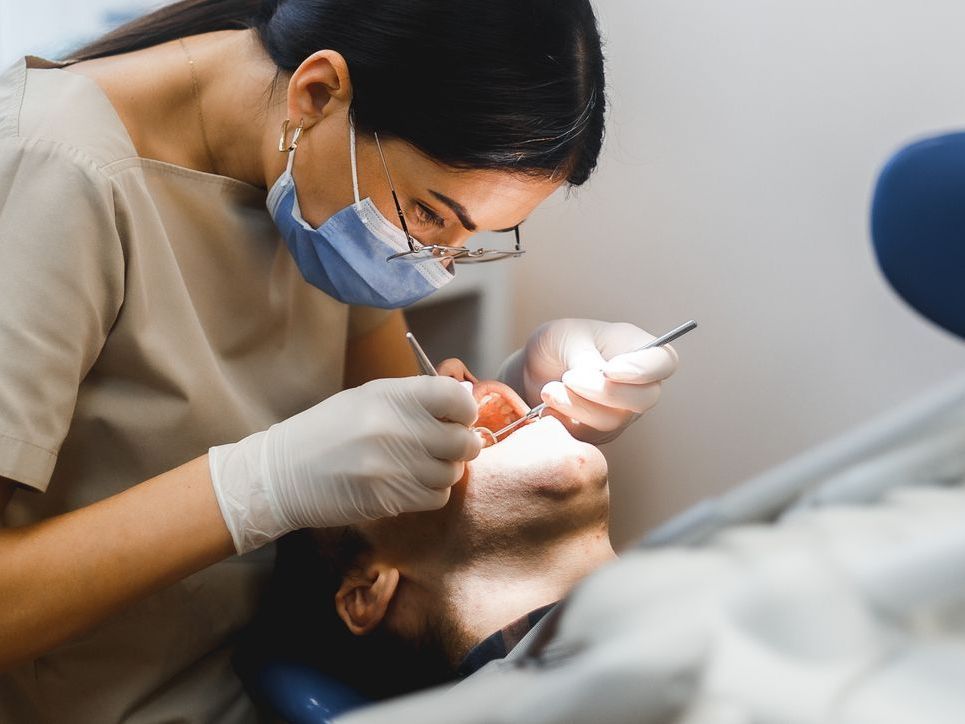Cavities: Understanding the Causes and Prevention of Tooth Decay
Welcome to Dental Arts comprehensive guide about cavities. It was curated by our dedicated dental staff, led by Dr. Michaelsen. We have years of experience in providing exceptional oral care and are passionate about educating you on the impact that cavities can have on your oral health.
We want to educate you and empower you to make an informed decision about your dental health. This comprehensive guide will shed light on the complexities of cavities, including their causes and prevention methods. Understanding the subtleties of tooth decay will help you take proactive measures to protect your smile and maintain optimal oral health.
We invite you to join us as we explore the world of tooth decay and reveal the secrets of maintaining a healthy smile. Discover how to effectively prevent cavities by exploring the information below.
What are Cavities?
Untreated cavities, also known as dental caries, or tooth decay can have a significant impact on your oral health. These areas of damage usually develop on the teeth's surface and are the result of complex factors. Other factors that contribute to the formation of cavities include bacterial activity within the mouth, dietary habits, and genetic predispositions.
Cavities are formed when sugars and starches in foods and drinks we consume interact with the bacteria that naturally exist in our mouths. These bacteria metabolize carbohydrates and produce acids as a by-product. These acids can slowly erode the outer, hard layer of the teeth, the enamel. Enamel erosion can weaken the tooth structure and create openings where cavities may develop.

Individual genetic factors, in addition to bacterial activities and dietary influences, can play a part in the formation of cavities. Some people may be more susceptible to developing cavities due to a naturally weaker enamel, or differences in the composition of their saliva. Certain genetic traits may also affect the effectiveness of the body's defence against oral bacteria, or repair minor enamel damage. This can influence overall cavity risk.
The effectiveness of dental hygiene can also have a significant impact on the development of cavities. Regular brushing and fluoride remove plaque, a film of bacteria and food particles that form on teeth. If you do not maintain good oral hygiene, plaque can harden and become tartar. This provides a breeding ground for harmful bacteria as well as accelerating enamel erosion. Individuals with inconsistencies or inadequate oral hygiene routines are more likely to experience cavities.
Understanding the complex nature of cavities and the need for comprehensive oral care is essential. By addressing bacterial activities, adopting an appropriate diet, considering genetic factors, and maintaining diligent dental hygiene practices, people can reduce their risk of developing cavities.
Cavities Symptoms
Cavities may show different symptoms depending on the size and location. There are several common signs of dental cavities.
- A toothache is a pain in the teeth, especially when you bite down on or consume hot, cold sweet, or acidic food.
- Sensitivity towards temperature changes or sugary substances
- Dark spots, pits, or holes visible on the teeth
- Unpleasant breath or bad taste in the mouth
- The gums may swell or be red around the affected teeth
If you notice any of these symptoms it's important to get dental treatment as soon as possible. Untreated cavities can cause complications, such as abscesses or infections.
What Causes Cavities?
- Poor Dental Hygiene: Lack of brushing and flossing allows plaque to form on teeth. Plaque is a film of bacteria that produces acids and can cause enamel erosion.
- Habits of Diet: Sugary drinks, foods, and snacks are a major cause of cavities. Sugars are a food source for bacteria in the mouth, which produce acids that weaken tooth enamel and cause decay.
- Dry Mouth: A reduced saliva flow can be caused by medication, medical conditions, or mouth breathing. This can increase the risk of cavities. Saliva is essential for neutralizing acids and maintaining a healthy pH level in the mouth.
- Genetic Factors: Genetics has a significant impact on an individual's susceptibility to cavities. Varying enamel structure, changes in saliva composition, and general oral health can increase the risk of decay.
How to Prevent Cavaties
Preventing cavities and maintaining good oral health is essential. Here are some essential tips to prevent cavities:
Treatment of Cavities
Dental Arts is dedicated to providing you with comprehensive dental care that meets your specific needs. Our team of professionals is dedicated to helping you achieve a beautiful, healthy smile. Call us to set up an appointment or find out more about our services.



